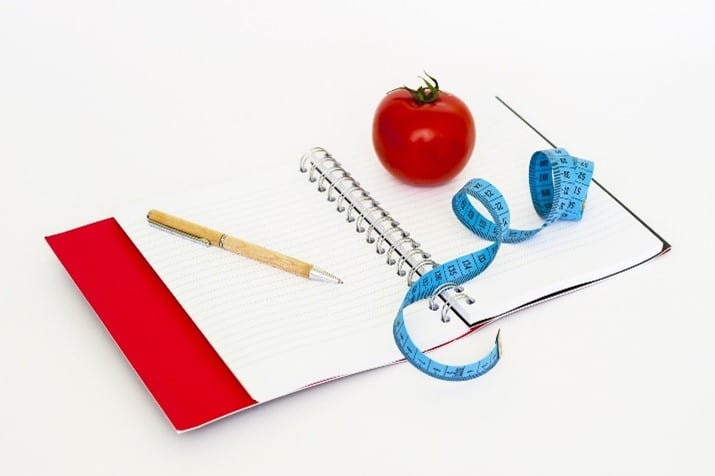Bariatric surgery is a helpful tool to jumpstart weight loss for people who haven’t had success through diet and exercise. While all surgeries come with risks, doing nothing is often much worse. Obesity can cause several significant health issues, and bariatric surgery can help patients achieve and maintain a healthy lifestyle.
Bariatric surgery isn’t a quick fix, however, and patients need to take steps to ensure their weight loss success. If you’re considering bariatric surgery, here is what you need to know about achieving your weight loss goals after the procedure:
1. Focus on Hydration
Dehydration is the number one cause of hospital readmittance after surgery. You will need to drink eight glasses of water (64 ounces) per day. While this may not be an issue for you before surgery, it can be a challenge when your stomach is smaller. You have to take small sips throughout the day and also plan your water intake around your meals. A good strategy is to sip a cup of water before and after every meal. Be sure to wait at least 30 minutes after a meal to drink anything and avoid drinking anything 30 minutes prior to meals as well.
2. Eat Small, Frequent Meals
Instead of the traditional three meals per day, you should aim for six smaller meals of ½ to one cup of food. Take your time when you eat your food. You should chew it slowly and thoroughly without distractions (e.g. eating in front of the TV, eating while checking emails, etc.). This practice is called mindful eating as it allows you to take note of when you are hungry instead of eating out of boredom or due to emotional triggers. It also allows you to take note of when you’re full to avoid over-eating, indigestion, nausea, and so on.
3. Make Protein a Priority
When people think of protein, they often associate it with building lean muscle. However, it’s also a critical component of a healthy diet. It’s even more important following bariatric surgery because protein plays a significant role in maintaining existing muscle mass as well as keeping your hair, nails, and skin healthy.
When you lose weight, you lose it from fat and muscle. The body can’t synthesize protein on its own, so it’s critical to consume enough through food. Fruits and vegetables are part of a healthy diet, but they’re also low on protein and high on carbs. Aim to consume 60-80g of protein per day.
Chicken, fish, eggs, cheese, tofu, beans, and nuts are all great sources of protein. In the first couple of months following your surgery, you will start with a liquid diet. It’s not as critical to meet your protein goal during this phase, but adding protein powder to drinks can help.
4. Prevent Nutrient Deficiencies with Supplements
Most people obtain the vitamins and nutrients they need through their diet. Following bariatric surgery, it’s critical to take supplements and vitamins to bridge the diet gap as you will be consuming significantly less food. Your doctor will advise you on a supplement and vitamin regimen, but you can expect to take multivitamins, calcium supplements, Vitamin D, and Vitamin B12. Women may need an iron supplement as well. Depending on the type of bariatric procedure, you may need to cut or crush the pills into small pieces as whole pills are harder for your new anatomy to absorb.
5. Download a Diet and Fitness App
It’s hard to keep track of your nutrition without writing it down. Downloading a diet and fitness app allows you to track your food intake to make sure you’re following your diet correctly and keeping within your calorie limits following surgery. Many apps track nutrients as well, which is convenient for making sure you eat enough protein.
For the first two months post-surgery, you will only consume around 300-600 calories per day. This is due to your dramatically reduced stomach size as well as the slow re-introduction of solid foods. Once your diet stabilizes, you should aim to consume 900-1000 calories per day. You should also limit bread, rice, and raw fruits and veggies (particularly if they have skin) as they are harder for your new stomach to digest.
Also, avoid carbonated beverages or drinking with straws as they introduce air into the stomach. This can cause discomfort and stretch out your stomach, which negates the point of the procedure. You should also avoid sugary foods and drinks as your stomach may dump them directly into the small intestines without digesting them first. This can make you feel dizzy, nauseous, and sweaty. It can also cause bloating, stomach pain or cramps, and diarrhea.
Your diet will need to undergo a radical change following surgery to experience the best weight loss results. You will want to focus on eating low-fat, low-sugar, and low-calorie foods. Eating adequate protein, vitamin supplements, and hydration are also critical to your health and wellbeing after bariatric surgery. It may seem daunting at first, but surrounding yourself with supportive friends and family can help keep you committed and upbeat about achieving your weight loss goals. Contact us to learn more about bariatric surgery and if it’s right for you.





